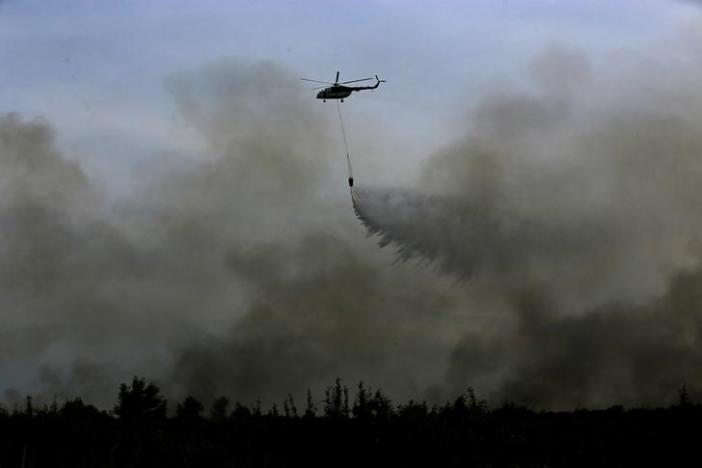Indonesian police have arrested more than double the number of individuals in forest fire cases this year compared with 2015, when large parts of the region were blanketed in choking smog from fires that caused a national crisis.
According to police data released on Thursday, 454 individuals have been arrested in connection with forest fires so far this year, up from 196 arrests in 2015.
Home to the world’s third-largest area of tropical forests, Indonesia has been criticised over the haze by green activists and neighbouring Southeast Asian nations, and despite a decline in hotspots this year its authorities are under pressure to show they are taking action.
Environment Minister Siti Nurbaya said patrols were educating the public about alternatives to using fire to clear land and checking if arrested individuals understand the broader concerns.
“If we can see they were acting on orders they are immediately investigated by police,” she said.
So far, nine companies are being investigated in connection with fires this year, compared with 25 that were investigated throughout 2015, police chief investigator Ari Dono said.
It was not immediately clear what punishments would be imposed.
National police chief Tito Karnavian said law enforcement was one of the reasons the total area of land burnt in 2016 had declined “significantly”, coupled with a quicker response in fighting fires, more preventative efforts and favourable weather conditions compared with 2015.
Heavy smoke from slash-and-burn clearing often comes from the islands of Sumatra and Kalimantan, where large forest concessions are used by pulp and paper and palm oil companies, some of which are listed in Singapore.
Indonesia imposed record fines against a local plantation company this month in connection with fires in 2014.
WRI Indonesia forest and climate manager Arief Wijaya praised the government for showing a stronger commitment to tackling fires this year, but said the current approach may not be enough to stop fires from being lit.
“The long-term solution to forest fires in Indonesia actually lies with the local people,” Wijaya said.
“If setting fires is part of the culture, plus poverty, plus demand to fulfil basic livelihood of people living in areas surrounding peat areas or forests then fires will always happen.”
Law enforcement efforts, he said, have tended to focus on catching individuals lighting fires, rather than punishing plantation concession holders or companies for negligence.
“We know not all concessions have firefighting infrastructure,” he said.
According to Zenzi Suhadi, head of legal research at the Indonesian Forum for the Environment (Walhi), companies often burn forest and get it rezoned for plantations the following year once it has been classified as “degraded”.
“The legal process is still far from effective in stopping environmental crime, forest crime and corporate crime.”
(Additional reporting by Agustinus Beo Da Costa; Editing by Alison Williams)





Reader Interactions